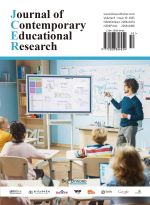Abstract
Guided by the concept of “assessment for learning,” the role of feedback and educational measurement in teaching is evolving from merely evaluating outcomes to actively regulating learning processes. This study focuses on optimizing senior high school English reading teaching through feedback-driven strategies, emphasizing the critical support provided by instructional measurement. It first clarifies the theoretical underpinnings and essential functions of teaching measurement, including diagnosis of learning gaps, dynamic regulation of instruction, and sustained motivation for learners. The study then examines how diverse assessment tools—such as in-class quizzes, formative reading tasks, and performance-based activities—are effectively integrated into reading teaching to capture students’ comprehension depth, reasoning patterns, and language application skills. By illustrating practical strategies for transforming measurement data into meaningful feedback, it highlights how teachers can provide targeted guidance that fosters reflective learning. Furthermore, the research proposes a “measurement–assessment–teaching–learning” closed-loop mechanism to ensure continuous alignment between instructional goals and learning processes. Findings suggest that embedding formative assessment and diversified measurement approaches into English reading lessons not only improves students’ feedback literacy and self-regulation abilities but also enhances teachers’ capacity to make informed pedagogical adjustments. Ultimately, this approach promotes a shift from an exclusive focus on end results to a holistic process-oriented perspective, offering both practical insights for classroom teachers and theoretical contributions to future research on feedback and assessment integration. This study adopts a qualitative case analysis approach, incorporating classroom observations, student artifacts, and interviews to explore the implementation of feedback strategies and measurement tools. The findings reveal that feedback-driven teaching enhances students’ self-regulation and metacognitive awareness, while also informing pedagogical adjustments. These insights contribute both to classroom practices and to the theoretical discourse on formative assessment in English language education.
References
Ministry of Education of the People’s Republic of China, 2020, General Senior High School English Curriculum Standards (2017 Edition, Revised in 2020), People’s Education Press, Beijing.
Shepard L, 2001, The Role of Classroom Assessment in Teaching and Learning. Handbook of Research on Teaching, 4: 1066–1101.
Tolonen M, Arvonen M, Renko M, et al., 2024, The Effect of Promoting Factors on Learning by Four Different Delivery Modes. BMC Medical Education, 24(1): 880.
Ismail SM, Rahul DR, Patra I, et al., 2022, Formative vs. Summative Assessment: Impacts on Academic Motivation, Attitude Toward Learning, Test Anxiety, and Self-Regulation Skill. Language Testing in Asia, 12(1): 40.
Hopfenbeck TN, Zhang Z, Sun SZ, et al., 2023, Challenges and Opportunities for Classroom-Based Formative Assessment and AI: A Perspective Article. Frontiers in Education, 8: 1270700.
Tilo L, Yeung M, Eugene L, et al., 2021, How Formative Are Assessments for Learning Activities Towards Summative Assessment? International Journal of Teaching and Education, 9(2): 42–57.
Haywood HC, Lidz CS, 2007, Dynamic Assessment in Practice: Clinical and Educational Applications, Cambridge University Press, Cambridge.
Gronlunds, N, 2021, Measurement and Assessment in Teaching. Pakistan Journal of Educational Research and Evaluation, 5(2): 23–41.
Widana IW, Sumandya IW, Citrawan IW, et al., 2023, The Effect of Teacher’s Responsibility and Understanding of the Local Wisdom Concept on Teacher’s Autonomy in Developing Evaluation of Learning Based on Local Wisdom in Special Needs School. Journal of Higher Education Theory and Practice, 23(10): 152–167.
Earl L, 2013, Assessment as Learning: Using Classroom Assessment to Maximize Student Learning (2nd ed), Corwin Press, California.
Vaughan M, Uribe S, 2024, Re-Examining Our Feedback Model: Strategies for Enhancing Student Learning and Cultivating Feedback Literacy Through Formative Assessments. Assessment & Evaluation in Higher Education, 49(5): 711–723.
Chukwubikem PEI, 2013, Developing Better Teacher Evaluation. Journal of Educational and Social Research, 3(6): 49–58.
Kubiszyn T, Borich GD, 2024, Educational Testing and Measurement: Classroom Application and Practice (12th ed.), John Wiley & Sons.
Chang CC, Liang C, Chen YH, 2013, Is Learner Self-Assessment Reliable and Valid in a Web-Based Portfolio Environment For High School Students? Computers & Education, 60(1): 325–334.
Hargreaves E, 2012, Teachers’ Classroom Feedback: Still Trying to Get It Right. Pedagogies: An International Journal, 7(1): 1–15.
